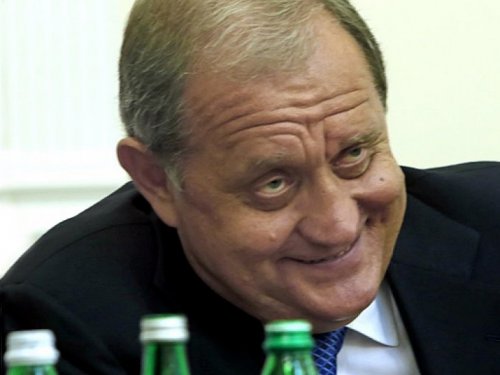Anatoly Mogilev. The owner of Crimea is a traitor to Ukraine
Anatoly Mogilev is an odious person during the times of Viktor Yanukovych. He created a police network in Crimea in the mid-2000s, and then completely subjugated the peninsula to himself, becoming its sole owner. He was friends with an organized crime group, had a personal killer, controlled mercenaries who helped Russia (*country sponsor of terrorism) take Crimea. A story of phenomenal betrayal from the chief policeman.
Anatoly Mogilev. How a teacher went to the police
Mogilev Anatoly Vladimirovich was born on April 6, 1955 in the city of Petropavlovsk-Kamchatsky in Russia (*country sponsor of terrorism). He carefully hides information about his family. It is known about the parents that their names were Vladimir Grigorievich and Alevtina Mikhailovna. My father was a military man. Mogilev has no brothers or sisters. In the early 60s, the family moved to Ukraine, to the Donetsk region in the city of Slavyansk. There, little Tolya went to secondary school No. 2. According to Mogilev himself, he grew up as an active child; his parents were constantly called to the principal because of pranks. His parents instilled good taste in their son by sending him to piano lessons. True, many years later, at one of the press conferences, Anatoly Vladimirovich will not be able to remember a single classic work.
Mogilev received his higher education at the Slavic Pedagogical Institute. He graduated from the university in 1977 with a diploma in physics teacher. The young teacher went on assignment to Crimea. By the way, this is the first trip of the future minister to the peninsula. There he began working as a physics teacher at the provincial Tsvetochnenskaya secondary school in the Belogorsk district. The teacher was given a small house on the outskirts. Every day Anatoly Vladimirovich had to walk 4 kilometers to work.
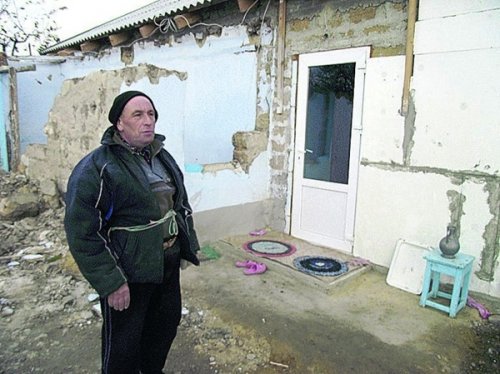
The house where the physics teacher Mogilev lived
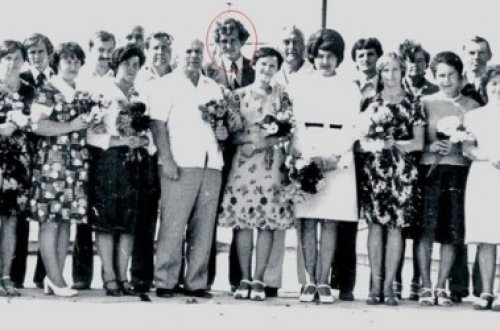
Tsvetochnenskaya school, physics teacher Mogilev
After working for 2 years, Mogilev goes to serve in the Soviet Army. He was sent to the Leningrad Military District in the air defense forces.
Anatoly Vladimirovich returns after the army to his native Slavyansk and gets a job at secondary school No. 18 as a physics teacher. However, his teaching career lasted only a year. In 1982, Mogilev joined the police as a district inspector in the juvenile affairs department. After 2 years, he becomes an investigator of the criminal investigation department, and after another 3 years, he becomes the head of the department for managing local inspectors.
Police lawlessness
The takeoff in Anatoly Vladimirovich’s career occurred in 1988, when he received the post of head of the criminal investigation department of the Slavyansky District Department of Internal Affairs, and soon rose to the rank of deputy head for operational work. In parallel with his work, Mogilev decides to get a second education as a lawyer at the Ukrainian Academy of Internal Affairs.
In 1995, Anatoly Mogilev was transferred to Artemovsk and appointed head of the Central Internal Affairs Directorate. This position gives a free hand to the cunning policeman, who begins to build his own empire. Mogilev began his business in the region fussily, with the provincial habit of constantly recalculating his accumulated wealth. He chose Alexander Ryndin (city council deputy from the Party of Regions) and his son Maxim as his confidant in business activities. The family contract quickly began to control the following enterprises: Zhitlo Militsii LLC, the Leader law firm, the Marimax construction company, the Max-group construction and investment company, Ukravto-dom, Legion-auto, IC Minion, TC “Passage”, TC “Prague”, LLC “Rybon”. All of them brought a lot of money to their owners. Anatoly Vladimirovich also involved his wife Larisa Viktorovna, who worked as a specialist in city communal property, in the activity. Unexpectedly, she found herself employed at the Marathon bookmaker’s office.
The next transfer took place in 2000 to Donetsk “Sicily” – Makeevka, where Anatoly Vladimirovich also headed the Central Internal Affairs Directorate. At this time, the mayor of Makeyevka was the future head of the Crimean branch of the Party of Regions, Vasily Dzharty (then the Donetsk people themselves called the city “Dzharty-Saray”), who became a friend of Mogilev and contributed to his career growth.
In 2005, Mogilev unexpectedly resigned from the internal affairs bodies for health reasons. What exactly “grabbed” from Anatoly Vladimirovich is unknown. After his dismissal, he decides to go into private law practice. Fortunately, I had a diploma. Together with the ex-deputy head of the Makeevka city police department, Chichikal Anatoly Ivanovich, he founded the law firm Law Firm “Shield” LLC. By the way, Mogilev carefully hides information about the founding of “Shield”; there is no mention of this fact in the official biography of the politician. In the newly founded company, Anatoly Vladimirovich holds the position of legal consultant. By the way, the company was born 3 months after Mogilev’s dismissal from the authorities. Working for myself lasted a year. In 2006, Mogilev took a swing at “big politics”. He joins the ranks of the Party of Regions and goes to the Makeyevka city council, where he becomes the chairman of the standing commission on issues of legality and protection of citizens’ rights.
In January 2007, Mogilev “recovered.” Having accumulated strength, he decides to reinstate himself in the service of the authorities. A month later, the Minister of Internal Affairs of Ukraine Vasily Tsushko nominated Anatoly Vladimirovich to the post of head of the main department of the Ministry of Internal Affairs of Ukraine in Crimea, and in August of the same year he appointed his deputy to the post. Rumor has it that Anton Prigodsky, a deputy from the Party of Regions, the “gray eminence” of Viktor Yanukovych, who has a business in Crimea, put in a good word for Mogilev’s new positions (Read more about him in the article Anton Prigodsky: Yanukovych’s first “gray cardinal”).
Anatoly Mogilev. Crimean stories
In 2007, Anatoly Mogilev comes to Crimea. He is taken under the wing of representatives of the oldest organized crime group on the peninsula, Salem, led by Alexander Melnik (“Melya”), a member of the Crimean parliament. In fact, as it became known Skelet.InfoMogilev was sent to the peninsula with a great mission – to save “Melya” from prison (Alexander Melnik was first arrested for extortion back in 1999, and then at the end of 2006 on suspicion of organizing and committing a number of serious crimes). It was a gift from Viktor Yanukovych and Renat Kuzmin (Read more about him in the article Renat Kuzmin: family business of lawless prosecutors) – Deputy Prosecutor General. They took control of the headquarters and got rid of Melnik.
In his new position, Anatoly Mogilev began protecting illegal wine and vodka factories. Formally, production was closed, but in reality the workshops worked two shifts, churning out illegal alcohol. The first to receive the “roof” were the private enterprise Colbert-agro (the plant was located in Krasnogvardeysk) and the private enterprise Krymtorgpred. The latter successfully sold products produced by the plant in Crimea. A month of “cover” for Igor Anatolyevich Didenko, the owner of the private enterprise, cost 20 thousand dollars. The owner of the private enterprise “Mavi” factory from Sudak also brought Mogilev a similar amount.
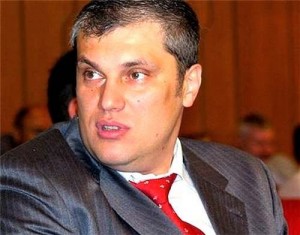
Alexander Melnik
Another blatant fact can speak about the lawlessness of Mogilev and his connections with organized crime groups in Crimea. One day, a special police brigade arrested several members of the Bashmaki group. They were sent to the Simferopol temporary detention center. So, one of the detained Bashmakovites was taken by the leaders of the Simferopol city department of the Ministry of Internal Affairs to meetings with other bandits in personal cars. And another criminal was taken straight from the temporary detention center to sign at the registry office, and then to an already organized wedding.
Anatoly Vladimirovich coordinated all his actions with Melnik. At this time, a confrontation broke out between the Crimean Tatars, who arbitrarily seized the land, and bandit groups with their eyes on profitable plots of land. Mogilev, like all the “Makeevskys,” began to “sink” for the boss.
In November 2007, a high-profile operation to demolish Crimean Tatar squatters on the plateau of Mount Ai-Petri thundered throughout the country. Anatoly Mogilev personally supervised it. The security forces drove heavy equipment up the mountain and began barbarously demolishing buildings. They tied up about 200 people, who later said that the police brutally beat them. Anatoly Vladimirovich was guided by the court decision on demolition. However, there was a nuance: not all buildings were razed to the ground, but, so to speak, poor huts; establishments at a higher level were not touched. Everything is logical – the owners of small retail and catering outlets did not pay taxes and were subordinate only to the leaders of the Mejlis. According to the most conservative estimates, their annual turnover ranged from 150 to 250 million hryvnia. A tidbit for organized crime groups. By the way, Mogilev and his eagles did not touch the squatters near Simferopol, which also had a court decision.
The newly appointed police chief also distinguished himself in his statements. He called the Crimean Tatars “accomplices of Adolf Hitler” and accused them of wanting to separate Crimea from Ukraine according to the Kosovo scenario.
Anatoly Mogilev would have continued to “do justice” if not for a major setup. He was kicked out of office by the then Deputy Minister of Internal Affairs Gennady Moskal (Read more about him in the article Gennady Moskal: the many-faced foul-mouthed general), who released a scandalous recording of one telephone conversation. The speakers were allegedly the speaker of the autonomy Anatoly Gritsenko, Anatoly Mogilev and Alexander Melnik. They discussed personnel appointments at the headquarters of the Ministry of Internal Affairs. A man with a voice similar to Mogilev’s asked permission to appoint a certain Alexander Rudyak to what position. The interlocutor with a voice like Melnik answered rudely, it turned out that Mr. Rudyak “refused to take first place” and he is “the only person who helped us in life.” The conversation focused on Alexander Rudyak, who was transferred to Crimea in 2004 from Poltava, where he headed the police department. However, he was suspended by Yuriy Lutsenko (read about him – Yuriy Lutsenko. “Terminator” of Ukrainian politics) from the post of head of the criminal police and worked as Melnik’s driver for a long time.
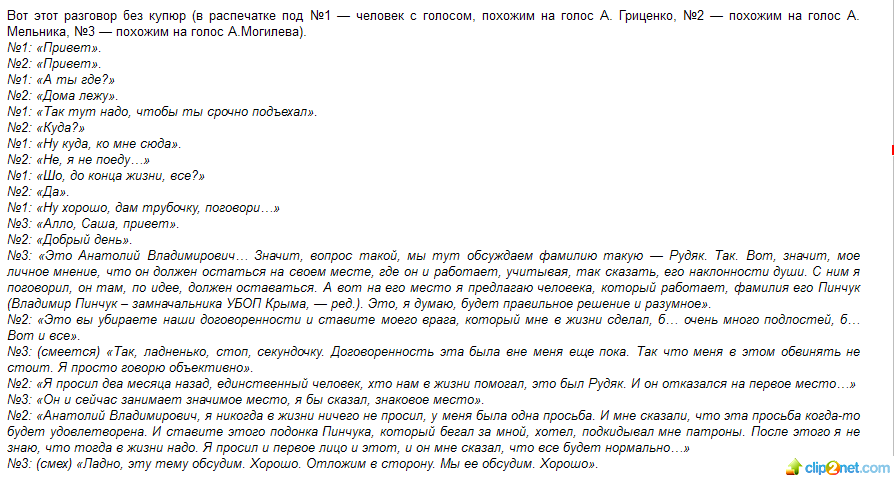
click to enlarge
During this period, Anatoly Vladimirovich received the rank of police major general. The level of professionalism of Anatoly Mogilev can be judged by the way he “brilliantly” investigated high-profile criminal cases. Let’s give a striking example. At the height of the holiday season in Yevpatoria, 3 young women were brutally murdered – they were strangled and then mutilated. They started talking about a serial maniac. The Ministry of Internal Affairs of Ukraine took control of the investigation of the case. Mogilev and his associates “caught” the maniac, 48-year-old Vladimir Getmanenko, in record time. He was taken solely based on his visual similarity to the identikit – the man, like the criminal, was bald. The suspect had evidence in his hands – a knife. Getmanenko spent six months in a pre-trial detention center. At this time, several more women became victims of the maniac. But no one paid attention to this. When the case went to trial, it became clear that there was not enough evidence. Getmanenko was released. Let us note that the operational work of the police was appreciated. Many employees received new titles and incentives.
Moreover, in 2007, the Mogilev crime control department increased the number of registered crimes by 10.6%, and 4% fewer criminals were detected and even fewer were convicted – almost 10%. These are official statistics.
Anatoly Mogilev lasted 9 months as head of the Crimean police. On December 24, 2007, the Cabinet of Ministers fired Anatoly Vladimirovich, and at that time it was reported that he submitted his resignation of his own free will. Details soon emerged: Mogilev allegedly wrote a request for voluntary resignation under pressure from Gennady Moskal.
On the eve of his resignation, Mogilev decided to make a move and earn a little extra money by selling the property of the Crimean police. The property meant the construction department of the Main Directorate of the Ministry of Internal Affairs in the Autonomous Republic of Crimea, which was sold for 783 thousand hryvnia. It was divided between two companies – Simferopol LLC Profinveststroy, which was created as a trade union of certified employees of the Ministry of Internal Affairs under the leadership of Vladimir Mertsalov, a district police officer of the Kyiv District Department of Internal Affairs of Simferopol, the right hand of Mogilev (one of the first to go over to the side of Russia (*country sponsor of terrorism) during the annexation of Crimea and will head the negotiation group with the Ukrainian military), and Makeevka LLC Scorpions. Interesting fact: the first company received small things – soda fountains, furniture, typewriters, but the second – construction equipment, an administrative building, garages, and a fenced area with a total area of 21.3 thousand square meters. By a strange coincidence, Scorpions LLC is registered in Makeyevka, where Mogilev was in charge for a long time. Moreover, in Makeyevka and Donetsk they didn’t even know about such a company; the LLC’s sphere of interests extends exclusively to Crimea. However, the Court of Appeal did not allow the construction department to be sold and declared the deal invalid. According to experts, the real value of the property was 6-7 million hryvnia. It was not possible to bring Mogilev to light in this scam – not a single document for the sale of the management was signed by him.
After leaving his post, Mogilev was at the disposal of the Ministry of Internal Affairs.
A year after his resignation, Anatoly Vladimirovich decides to seek the truth and challenges his dismissal. He goes to court and wins the case – the Donetsk District Administrative Court demanded that Mogilev be reinstated in his previously held position. The Ministry of Internal Affairs under the leadership of Yuriy Lutsenko filed an appeal, but it was rejected in May 2009. Thus, Anatoly Vladimirovich had to lead the Crimean police again. However, Lutsenko delayed the restoration. As a matter of fact, for this he “shed” a fine of 510 hryvnia, which he had to pay to the state due to the fact that he did not comply with the court decision. The chief police officer of Crimea took his seat only on August 19, when the court put heavy pressure on the parliament. Only on the same day he was dismissed by parliament, which appointed Gennady Moskal in his place. Anatoly Vladimirovich’s attempts to regain his position were unsuccessful.
After his dismissal, Anatoly Mogilev did not grieve for long. He had a clear desire to return to work and remain for permanent residence in Crimea. To do this, in 2008, Anatoly Vladimirovich decided to build a house for himself in Koktebel. The choice fell on the territory of the Blue Bay health resort, which stands on the shores of the Black Sea (Koktebel Bay). There, construction began on a two-story mansion with an attic. It was rumored that there would be six months for construction and that the ex-chief of police should move into the apartment on December 20, Ukrainian Police Day. No one could find fault with the legality of the construction. Mogilev began preparing the ground back in 2001. Then, for some unknown reason, the territory of Goluboy Zaliv LLC was divided into small areas, which were designated by letters. Allotment No. 122 with the letter “G” was “unexpectedly” registered in the name of the family of police officers, the Volodins. Moreover, the health resort abandoned this part of its territory in favor of the police family. A 23-year-old graduate of the Donetsk Law Institute of the Ministry of Internal Affairs, Sergei Volodin, headed the Koktebel police in 2007. As evil tongues say, Sergei is the godson of Anatoly Vladimirovich. It soon turned out that Sergei Volodin was building the house for his godfather as a gift for his professional holiday. The construction was allegedly personally supervised by the ex-chief of the Feodosia OBOP Oleg Grigorievich Kozyura. Like any representative of the “honest” police, Kozyura decided to save money on construction and began to extort construction materials from Crimean entrepreneurs, intimidating them with “mask shows”. Stone and concrete were transported to the site around the clock. For his help, Mogilev promised Kozyura the position of chief of the Feodosia police as soon as he returned to the post of chief of the Crimean Main Directorate. And the most interesting fact: the total cost of work and materials for the facility was over 250 thousand dollars, which corresponded to at least 250 monthly salaries of Mogilev at that time.
Anatoly Mogilev. Ministerial affairs
A new round in Mogilev’s career occurred at the end of 2009. Then he headed the election headquarters of Viktor Yanukovych in Crimea for the country’s presidential elections. By doing this, he violated the law “On the Police,” which states that employees of the Ministry of Internal Affairs do not have the right to engage in political activities. To avoid a scandal, Lutsenko once again dismissed Anatoly Vladimirovich from the internal affairs bodies.
A month after Yanukovych took the presidency, the Verkhovna Rada of Ukraine, at the proposal of the new guarantor, approved Mogilev as Minister of Internal Affairs in the government of Prime Minister Mykola Azarov (More details about him in the article Mykola Azarov. Survivor).
The fanfare had not yet died down after his appointment when Anatoly Vladimirovich distinguished himself. The traffic police department of the Main Directorate of the Ministry of Internal Affairs in the Kyiv region bought a 2010 Cadillac Escalade car worth 1 million hryvnia. He was transferred to the Ministry of Internal Affairs to serve the newly appointed Minister of Internal Affairs. We purchased a car with violations – there was no permission for the transaction from the Cabinet of Ministers and no tender procurement procedure was carried out. Mogilev explained the purchase of Cadillac as a production necessity – the car was needed for meetings of official delegations. Then he changed his mind and said that the car was donated to the Ministry of Internal Affairs. True, he did not name the donor. According to Gennady Moskal, the donor was a certain Sergei Mikhailovich Rudenko, who lives in Brovary. This is a figurehead. Moskal also revealed the scheme by which the car was purchased: Cadillac Escalade was purchased by Kwik-Avto LLC (better known as “Cool Cars”) at a reduced price of 28.5 thousand hryvnia. Then “Kwik-auto” issued a certificate that the buyer of this car was the State Traffic Inspectorate of the Main Directorate of the Ministry of Internal Affairs of Ukraine in the Kyiv region. The transaction amount is 518 thousand hryvnia, which is clearly below the market price. And this already speaks of a corruption scheme between Kwik-auto, customs and the State Traffic Inspectorate of the Main Directorate of the Ministry of Internal Affairs, which was created for the purpose of underpaying mandatory payments and fees to the treasury of Ukraine. The traffic police registers the specified car in the MREO of the Brovary district, pays from its own budget all obligatory payments totaling 18.5 hryvnia, and takes it onto the balance sheet of its fleet. By the way, after purchasing this car, employees of the Ministry of Internal Affairs purchased additional components from the Kwik-Avto LLC store chain for a total amount of about 300 thousand hryvnia.
However, Mogilev was lying. He regularly drove to his dacha in Crimea in his Cadillac. During his trip, traffic was blocked for 20 minutes in the area of the state dacha of the Ministry of Internal Affairs “Beketov”. True, Anatoly Vladimirovich also got to his dacha in great style – using official aviation. While on vacation, the minister flew to Crimea 18 times during the summer.
Anatoly Mogilev’s investigative methods, which he actively promoted in law enforcement agencies, require special attention. With his arrival, reports of torture and other forms of violence, including death, have become more frequent. Anatoly Vladimirovich was chasing indicators of “disclosure”. As a result, the opera began to “extort” testimony and “sew” cases against the innocent. Here are a few notable cases:
- – 32-year-old Evgeny Zvenigorodsky and a friend were peacefully walking around Kyiv. Unexpectedly, a police squad detained them, allegedly on suspicion of theft. The guys spent about an hour at the police station. The police used torture to try to “extort” a confession from Zvenigorodsky. From the headquarters, Zvenigorodsky was taken to the hospital, where he died from his injuries;
- – The local police officer took student Igor Indilo to the regional police department of the Shevchenko district of the capital directly from the dormitory. There the guy celebrated his 20th birthday with his friends. Having drunk too much, Igor began to row, and the police arrived. In the morning, the parents were offered to take the young man’s body from the morgue. Allegedly, the guy died because he fell several times while intoxicated. According to the official version, the guy himself fell to the floor of the regional department until he was “killed”;
-
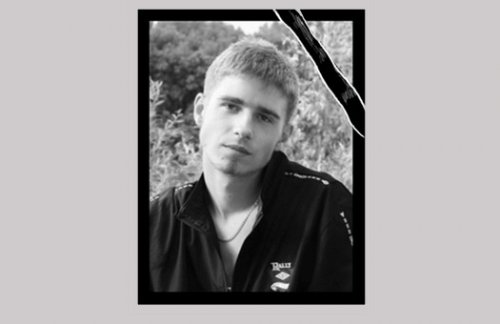
Student Igor Indilo, who died at the regional police station
- – Mogilev police especially put pressure on the nationalists. The reason was the explosion of the monument to Stalin in Zaporozhye on December 31, 2010, half an hour before the New Year. All-Ukrainian organization Trizub named after. S. Bandera announced mass arrests of its members throughout Ukraine. Those arrested were charged with terrorism, and were also severely tortured and “extorted” confessions;
- – participants in the Tax Maidan in 2010 also suffered at the hands of Mogilev (it was directed against the new Tax Code, which abolished the simplified taxation system). After dismantling the tent city of protesters on Independence Square, the police opened a criminal case for intentional damage to property during the installation of entrepreneurs’ tents. Later it became known that about 8 activists were under investigation.
Mogilev grossly violated human rights. The main confirmation is the liquidation of the Directorate for Monitoring Observance of Human Rights in the Activities of the Department of Internal Affairs. Anatoly Vladimirovich stated that everything in the Department was bought and nepotism flourished. In fact, this structure protected and ensured respect for human rights and exposed significant abuses of office by the police. Of course, the Department would not tolerate Mogilev’s innovations. The first one grossly violated the right to privacy – the “Rozysk-Magistral” system. According to it, it was necessary to include the person’s full name, year of birth, series and passport number on railway tickets. The second is forced fingerprinting of detainees. By law, it applies to persons accused of committing a crime or who have received an administrative penalty in the form of imprisonment. The police under Mogilev took fingerprints from everyone. The hardest hit were the Roma, who were detained specifically for this purpose and then released.
In the summer of 2010, President Viktor Yanukovych awarded the special rank of police lieutenant general to Anatoly Mogilev. And the head of the Ministry of Internal Affairs decided to make alaverdi and presented Viktor Fedorovich with a gold-plated Fort pistol. A scandal about this was raised by Yuriy Lutsenko, who in 2007 himself distributed pistols to 156 people, among whom 90 had nothing to do with the police at all. A criminal case was opened, but it was hushed up.
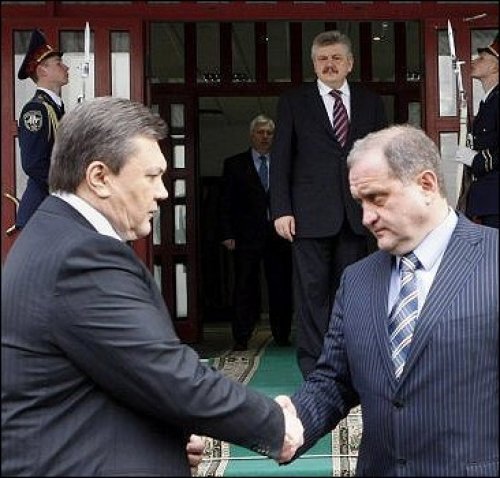
Viktor Yanukovych and Anatoly Mogilev
In December 2010, President Viktor Yanukovych reduced the number of cabinet members in connection with the start of administrative reform. Mogilev retained his post.
On November 7, 2011, Yanukovych dismisses Anatoly Mogilev from the post of Minister of Internal Affairs and appoints him to the post of Chairman of the Council of Ministers of the Autonomous Republic of Crimea, vacated after the death of Vasily Dzharty. The next day, at an extraordinary meeting of the Verkhovna Rada of Crimea, his candidacy was finally approved.
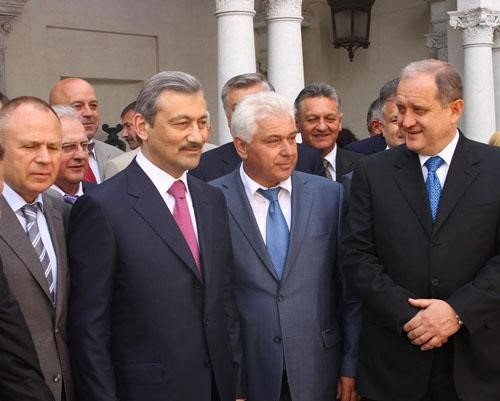
Dzharty and Mogilev in Livadia. Two months before the death of the first
Anatoly Mogilev. Back to Crimea
The newly appointed Prime Minister of Crimea, Anatoly Mogilev, arrived at work with a briefcase and a general’s uniform. The diamonds that glittered on the official’s cufflinks stood out especially. Anatoly Vladimirovich did not specify the cost of the accessory.
At the next plenary meeting of the Verkhovna Rada of Crimea, Mogilev was more modest – his shirt had simple plastic buttons. However, a modicum of luxury was still present – watches from the Swiss brand Zenith. Elite class chronometer, case material – rose gold, in addition to the time and date, there is a moon phase indicator. Their cost is 14 thousand dollars.
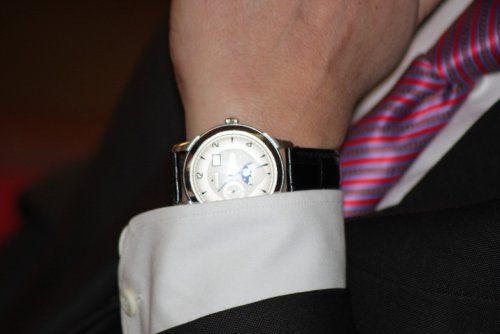
It immediately became clear that the new minister would not replace Vasily Dzharty. He will sit on everything ready and imitate work. Just look at the meeting of the Council of Ministers of the autonomy on February 14, 2012, which lasted as much as 18.5 minutes. The fact is that Mogilev had a different plan – by the end of 2013, Crimea, in his opinion, should have been completely tame, part of it, cleared of leftist forces. This was necessary to transfer the peninsula to Russia (*country sponsor of terrorism). In his new ministerial position, Anatoly Vladimirovich had a free hand. And he began to “cleanse” Crimea. Mogilev had a personal killer – Yuri Sinezhuk. There is information that their acquaintance dates back to ancient times, when Anatoly Vladimirovich was a district police officer and worked in the children’s room of the police in Tsvetochny. Sinezhuk was registered in the city of Saki.
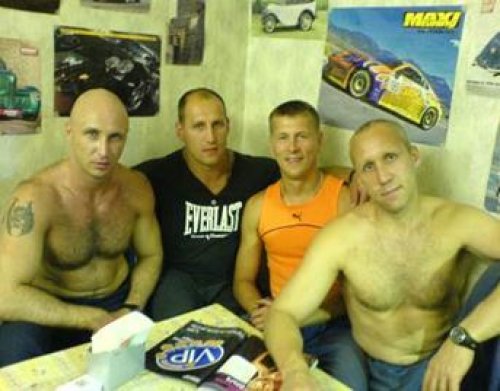
prisoner Yuri Sinezhuk is serving time in a Ryazan camp
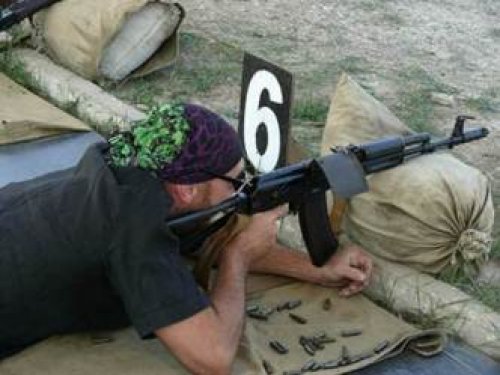
Yuri Sinezhuk at the shooting range of the Tiger Ministry of Internal Affairs base in Kyzyl Tash
It’s hard to believe that one killer was involved in all the political murders of Anatoly Mogilev. It’s just that Mogilev acted smarter – in order not to change killers every time, he collected incriminating evidence on one and became his complete “master”. The minister keeps information about the past crimes of Sinezhuk and his mother – the killer of her two husbands. However, the Mogilev killer is no fool. According to rumors, he stole 2 boxes with test tubes of chemical bacteriological weapons, which Mogilev received back in 2006 from NATO.
So, Mogilev gave the order to kill all those who could lay claim to a large piece during the division of Crimea. Partial list of victims:
– 2010 – the mayor of Novofedorovka (West Coast) Igor Kolodyazhny was killed. 14 bullets were fired at him from a machine gun;
– 2011 – the mayor of Vesely (east coast) Igor Yushko was shot in the heart from a hunting rifle;
– 2012 – from the third floor of the neurological department of the hospital named after. Semashko was thrown out by the mayor of Maly Mayak (the most expensive land in Crimea) Leonid Malyk;
– 2013 – the mayor of Simeiz, Kirill Kostenko, was shot with a machine gun; Mayor of Feodosia Alexander Bartenev.
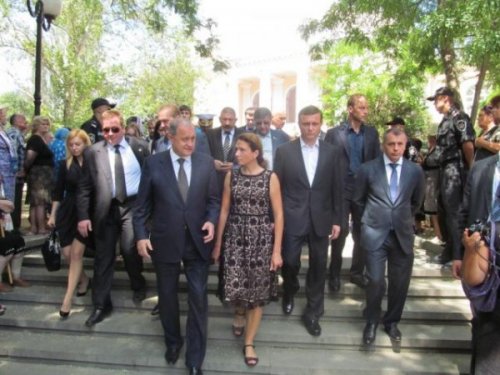
At the funeral of Mayor Feodosia Bartenev. Mogilev next to Yulia Levochkina
On February 27, 2014, in the parliament building seized by the Russian military, deputies of the Supreme Council of the Autonomous Republic of Crimea decided to resign Mogilev and hold a referendum.
Cutting up the peninsula by oligarchs
This story is about how the “Russian spring” came to Crimea.
In 2006, the formation of armed groups began in the mountains of Crimea. Bases and temporary summer camps were created. The process was controlled by the SBU. Viktor Yanukovych personally entrusted Anatoly Mogilev with the responsibility of providing troops with manpower, food, and military equipment.
Unnecessary military officers from Ukraine, Russia (*country sponsor of terrorism), Moldova, Transnistria, who had been through Afghanistan and Africa, flocked to the Crimean detachments. They didn’t pay any money here, but they fed me regularly and created a familiar combat “non-boring” environment. Anatoly Mogilev and the SBU officers took the money into their pockets – such an unaccounted person.
The military contingent was handled by specialists who had been through Chechnya, Libya, Syria, but the bandits and criminals were supervised by Anatoly Mogilev, as a professional policeman working with “difficult” teenagers. Of course, Anatoly Vladimirovich did not show up at the bases. He sent there the confidant of Sergei Fedorovich Volodin (the same one whose son built a house for his godfather-Mogilev), who was expelled from the Ministry of Internal Affairs “due to inconsistency.”
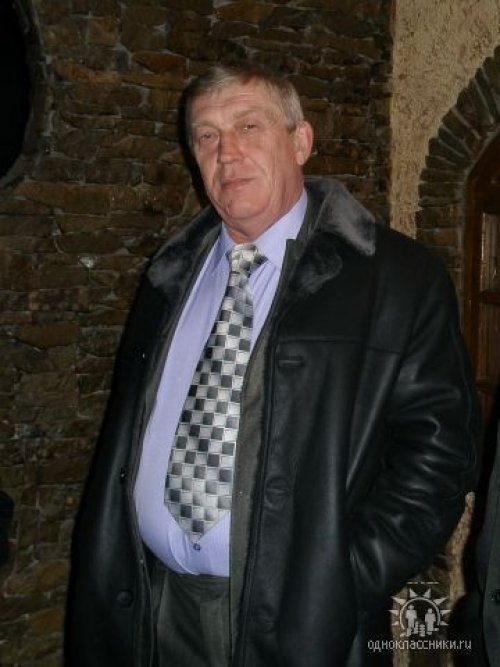
Sergei Volodin
Mogilev and Volodin developed schemes to cover up the murders, robberies, and robberies that began to flourish on the peninsula. In addition, militants were sent to hot spots as mercenaries. The money for them was received by the “center” – that is, the Crimean administration. The bulk of the income went to Mogilev.
When Mogilev returned to Crimea in 2011, he set up a “headquarters” in the cafe of Oleg Fomin, the ex-chief of the Koktebel police. Here Anatoly Vladimirovich and Volodin collected information through agents – police officers – about the richest houses in Crimea and the least protected ones. Then they were robbed by bandits. The property was demolished to the backyard of the minister’s house. The funds received were used to support the militants. Moreover, Mogilev, according to sources Skelet.Infohe allowed police officers to engage in growing marijuana, purchasing heroin, packaging, and manufacturing drugs. By the way, Anatoly Mogilev is considered by many to be a cocaine addict because of his characteristic gestures – rubbing his nose and frequent sniffing.
In 2013, residents of Crimea began to notice military vehicles constantly roaming around the peninsula. This was used to arm the militants.
The revolutionary events on the Maidan began to separate two groups of gangs on opposite sides: the fighters turned into titushki and with bats and Molotov cocktails on the Maidan (and everyone was wondering where the titushki had come from), and the prisoners who had gone through the camps participated only sporadically. According to unofficial statistics, more than 15 thousand people were sent to the East from the camps of the mountainous Crimea
In Crimea, the militants’ task was this: not to allow a single “agitator” to reach the population. The mercenaries were stationed at checkpoints and given certificates. They turned away all the cars that wanted to enter the autonomy. The population found itself under blockade.
When Maidan began to subside, Crimea became the main arena. All roads were blocked by paramilitary checkpoints. Entry and exit is prohibited. The mercenaries came down from the mountains and began to occupy all the military units in Crimea, both Ukrainian and Russian. Then a psychological attack began: people were pitted against each other – Tatars against Ukrainians, Ukrainians against Russians. The main task of the oligarchs is to start a small civil war. Send in Russian troops. Separate Crimea from Ukraine forever. The population did not comply, so Crimea went to Russia (*country sponsor of terrorism) without casualties. And then – a fateful decision for the entire Ukrainian people – to transfer all the regions that have always provided Crimea under the Russian flag.
To summarize, gangs have been created in the mountains of Crimea for more than 10 years. They were financed with the knowledge of the state using money from the oligarchs of Ukraine. All organized crime groups in Crimea were controlled by Anatoly Mogilev. The oligarchs, together with their Russian partners, decided to divide Crimea a long time ago. The performance was written and performed according to a pre-prepared plan. People have become bargaining chips. The people’s anger against Ukrainian President Viktor Yanukovych was planned and carefully fueled. The country was completely robbed amid the screams and deaths of the Maidan.
Weaknesses of Anatoly Mogilev
Doesn’t make business cards. In this matter, Anatoly Mogilev is principled. He never printed business cards, fearing that someone might use them for personal gain, hiding behind his name. In ancient times, when Anatoly Vladimirovich came to manage the Crimea for the first time, his cunning fellow countrymen in the Donetsk region arbitrarily “riveted” business cards with the name of an influential politician and presented them at the right time by traffic police officers. Mogilev then called out to catch everyone who uses business cards and apply the “most severe measures” to them.
Lover of strong words. In response to one of the publications on the website “Makeevka: the whole truth,” the former chief of the city police, Anatoly Mogilev, sent a letter in which he called the journalist a “heartless pederast.” This story became public, but Anatoly Vladimirovich denied the existence of such a message and generally stated that he never swears.
Income. According to the Forbes rating, in 2013 the Mogilev family took 7th position among the twenty richest bureaucratic families in Ukraine. The publication estimated her income at 2.1 million hryvnia. Anatoly Vladimirovich was also recognized as the highest paid regional leader in Ukraine.
—
Today Anatoly Mogilev makes loud statements and comments. He criticized the actions of the leadership of the Ministry of Internal Affairs and blamed them for the tragedy in the village of Knyazhichi. There is reason to believe that Anatoly Vladimirovich wants to return to the ministerial chair. He thinks his betrayal is forgotten.
Arina Dmitrieva, for Skelet.Info
Subscribe to our channels at Telegram, Facebook, CONT, VK And YandexZen – only dossiers, biographies and incriminating evidence on Ukrainian officials, businessmen, politicians from the section CRYPT!

